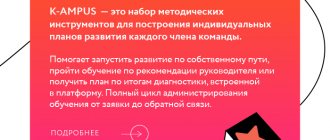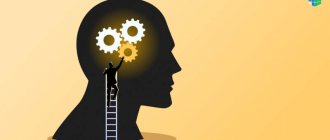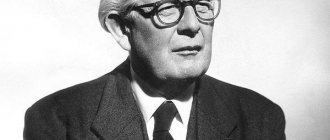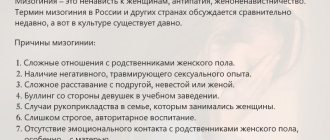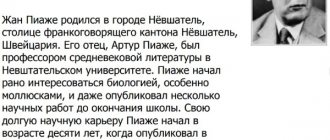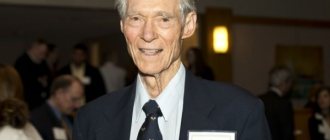People have long begun to think about the question why some people can easily solve complex mathematical problems or write essays, poetry, music, while others must make every effort to do this, and the result will not always be good. Why can some people draw a beautiful landscape or portrait, but they cannot solve a physics problem?
A person's abilities are determined by his intelligence. This is not one concept, it comes in several types. In psychology, there are 9 varieties that have their own character traits and predisposition to science.
Gardner's theory
In 1994, psychologist Howarth Gardner created the theory of multiple intelligences. It has become an alternative to the classical view of the nature of intelligence, as an individual’s ability to think logically.
Gardner believed that it is the multiple nature of intelligence that allows an individual to choose a profession or hobby for which he has the most pronounced predisposition.
The psychologist described intelligence not as a specific device that is located in the head, but as a potential that allows a person to use all his abilities in a certain situation.
Gardner identifies 7 types of intelligence in psychology, which do not depend on one another and can exist as separate systems with their own rules. Over time, the theory was interpreted, refined, and several more types were added.
Highlight:
- natural (naturalistic);
- musical;
- logical-mathematical;
- existential (philosophical);
- kinesthetic (bodily);
- interpersonal (social);
- spatial (figurative);
- linguistic (verbal);
- personal (internal).
Gardner's theory allowed us to take a fresh look at the concept of talent, ability and intelligence. The psychologist argued that different people have different types of intelligence. Therefore, if at school some students have a penchant for exact sciences and are considered smart, and those who easily find a common language with other children are considered chatterboxes and slackers, then this is wrong. Different types of intelligence are in demand in different professions.
What if we add more power?
By reading descriptions of types of intelligence, you can determine your leading type and those that are no less well developed, and pay attention to those that are in their infancy and require “refinement.” By following simple tips, you can develop types of intelligence that are currently weak.
- The development of verbal and linguistic intelligence will be helped by reading books and retelling them, as well as keeping a diary in which absolutely everything that interests you will be written down.
- Musical intelligence can be developed by singing, even if others think you have no voice or hearing. Both can be developed through singing. Listening to music, playing music and mastering a musical instrument also contribute to the development of musical intelligence.
- Logical-mathematical intelligence develops during games that require the use of strategy and logic: checkers, chess, dominoes or strategic games on the computer. Reading scientific magazines, watching scientific programs, and doing crossword puzzles also contribute to its development.
- Spatial intelligence is developed by visiting museums, galleries, exhibitions, viewing books with illustrations, studying design works and photographing the world around us.
- Bodily-kinetic intelligence can be developed during sports, as well as creativity associated with embroidery, drawing, and knitting. Meditation also contributes to its development. They will help you feel every part of your body and relax your muscles.
- Interpersonal (social) intelligence develops through communication. Its development is facilitated by new acquaintances, participation in volunteer projects, regular meetings with friends and conversations with family.
Not yet knowing about Gardner’s theory, teachers, observing their students every day, could determine each person’s abilities in a particular subject and supported their development by participating in children’s olympiads, competitions, and extracurricular activities. Now the theory of multiple intelligences is applied by teachers in practice; they not only determine the leading type of intelligence, but also try to develop the others. Of course, this does not happen in every school due to overcrowded classes.
But, for example, at ONLINE GYMNASIUM No. 1 they pay close attention to the personality of each student and their harmonious development.
- From the first day and for two weeks, the child is accompanied by an adaptation curator, who not only helps to get used to the new format of education, but also observes the child and analyzes his personality type.
- Further training is accompanied by a class curator, who also notices the strengths and weaknesses of students, helps them develop and successfully socialize.
- In the gymnasium, an individualized and flexible approach is used in the learning process, taking into account the psychological characteristics of children, including age. The developed competencies of teachers in this area make it possible to create a psychological and intellectual portrait of each child and build a personal vector of development, taking into account all the nuances.
- If you take advantage of the offer from the gymnasium and spend a free trial day in the classroom, you can see how this process goes and how students open up when the teacher works with their type of intelligence.
Natural
This type determines a person’s ability to interact with nature: to feel the animal and plant world. A person notices everything that is around him. He is interested in exploring plants, studying animals, their habits, classifying species, monitoring the weather, collecting butterflies or minerals.
A person with natural intelligence loves nature and outdoor recreation. For him there is no better holiday than going to the forest, to the lake or to the mountains. This ability was considered a gift by our ancestors. It was possessed by great hunters, berry and mushroom gatherers.
Despite the fact that such an ability is becoming a thing of the past, due to the development of technology, which has become firmly established in life, people will find themselves in such professions as:
- livestock farming;
- botany;
- gardening;
- astronomy;
- chemistry;
- cooking;
- agronomy;
- archaeologist.
This type of intelligence used to be incredibly in demand. After all, our ancestors interacted closely with nature: they collected herbs, fruits, and hunted. This gift was considered incredibly useful, and its owner received respect.
Intelligence.
The human brain is the main organ with the help of which we are aware of the environment around us and interact with this world. All our behavior is determined by processes occurring in our heads. All information received through the senses is also processed and remembered by the brain, and stored in the far corners of our memory. Throughout the history of mankind, it has always been important for people to know how high the intelligence of a particular person is. But methods for assessing intellectual abilities began to appear only in the middle of the 20th century.
Intelligence is the ability of an individual
In an attempt to measure the level of brain development, the German-British psychologist Hans Eysenck came up with the concept of IQ testing and began to apply it in practice. And, we must pay tribute, this method is still popular to this day. However, the essence of Eysenck testing comes down to identifying a person’s logical thinking and analytical abilities. And many scientists did not agree with such a one-sided approach to identifying human intellectual capabilities. One of these scientists was Howard Gardner, a professor at Harvard University, who proposed not to reduce all people to one standard, but to consider that all people are smart in their own way, and on the basis of this postulate he developed the theory of “multiple intelligences.”
He identified nine types of intelligence that influence how we work with information. His theory explains why everyone performs differently at the same tasks.
One way or another, debates in the global scientific community regarding the study of the functional asymmetry of the human hemispheres of the human brain do not subside to this day, and there is not even a hint of consensus on this issue) Nevertheless, Gardner’s theory looks very impressive, and it has taken its rightful place in in the minds of inquisitive people, without displacing Eysenck’s theory, about which mountains of articles have been said and written, so our article will focus specifically on the “theory of multiple intelligences”
Musical
A person with musical intelligence has developed hearing and a sense of rhythm. He easily grasps and distinguishes musical tones and melodies. He can easily sense a false note and pick out the chords of a song by ear.
He loves music, studies different styles, he likes to play musical instruments, because it comes easy. Talent is manifested in composing songs and poems, playing musical instruments, and singing. Such people easily improvise and become the life of the party.
Musical intelligence manifests itself earlier than others. Babies begin to respond to songs and move in rhythm before they begin to walk and talk. It's rare, but there are real geniuses like Yo-Yo Ma, who performed his first concert at the age of 6 years.
Professions:
- conductor;
- composer;
- arctic fox;
- musician;
- DJ;
- director;
- music producer.
If a person has not only musical, but also mathematical abilities, then one can easily become a drummer. After all, he must not only feel the rhythm, but also be able to count quickly.
This is interesting
Intelligence has many definitions, each of which attempts to fully reflect the meaning of a given concept. Academician Moiseev defined intelligence as the process of analyzing available resources, on the basis of which a strategy is built to achieve a given task.
Human intelligence has several qualities or components:
- Desire to learn something new (curiosity);
- The ability to sift out the essential from the unimportant (depth of intelligence);
- Ability to use acquired knowledge and experience (agility of mind);
- The ability to find connections, come to various conclusions along a chain of thoughts (logic);
- Ability to argue (evidence);
- The ability to adequately evaluate oneself and the world around us (criticality);
- Ability to evaluate the problem as a whole (breadth of thinking).
Each type of intelligence is based on these properties, the development of which determines the level of intelligence of an individual. Many games aimed at improving intelligence can be found on the Brain.apps website in the “Games for the development of thinking” section.
There is congenital dementia, which implies the presence of an insufficient basic level of intelligence, which a person is not capable of exceeding. Statistics show that approximately a tenth of the planet's population has a mild degree of dementia.
Logical-mathematical
People with this ability easily understand all problems related to numbers and mathematical concepts. They will find themselves in mathematics, computer science or logistics. Such abilities allow you to easily solve complex problems and carry out calculations, even with a large amount of data. These abilities are also suitable for detectives.
A person with logical thinking loves numbers more than live communication with other people, so he is unsociable. He is interested in solving logical problems, puzzles, and equations. Many become programmers.
People with a logical-mathematical type of intelligence are characterized by rapid recognition of connections between two objects, consistent reasoning, and noticing the smallest details. Suitable professions:
- mathematician;
- detective;
- composer;
- economist;
- conductor;
- physicist;
- engineer;
- financier;
- analyst.
Why is intelligence different?
The very concept of “intelligence” became popular at the beginning of the 20th century. It was then that the first tests appeared. And at the same time, many psychologists started talking about the impossibility of comparing people’s intelligence in a purely quantitative way.
Intelligence is a set of qualities and properties of a person that determine the ability to think. And as with any other abilities, the lack of some qualities can be compensated by the high level of development of others. For example, in communicating with people, not very good speech development can be compensated by the ability to listen, the ability to empathize, sympathize, willingness to help, etc.
Mental abilities, like any other, are manifested in activity. You can't determine a person's intelligence level if he's just lying on the couch. The famous psychologist J. Guilford identifies more than 100 primary mental abilities associated with various aspects of human activity. And those that determine a high level of intelligence in one area are completely unnecessary in another, and therefore do not develop, and their low level is not even noticeable. Thus, the verbal abilities necessary for a teacher or writer are of little importance for a mathematician. For him, the ability to operate with numbers and logical thinking is more important.
In addition, people differ not only in the level of mental abilities, but also in the nature of thinking. The thinking of a mathematician and an artist is different, not worse or better, but simply different.
There is also creative thinking - a very special type of mental activity, which is considered the highest level of cognitive processes and is highly valued in any type of activity. But it doesn't fit into any intelligence test. Because the tests are standardized, but creative thinking is non-standard, original, and a person endowed with it cannot give an unambiguous answer to many test tasks.
Existential (philosophical)
It is considered one of the most complex types of thinking. People with such abilities are characterized by an interest in global issues that relate to the essence of man and the meaning of his existence. Such individuals can put forward a new theory about life and death, the emergence of mind, the origin of the universe.
Manifestations include spiritual practices and religious beliefs. Philosophical intelligence is inherent in all people to one degree or another. After all, everyone wonders about their own purpose, the meaning of life, why sometimes bad things happen, about karma. But it is precisely existential thinking that is characterized by global questions: does God exist, where did life originate, what will happen after death.
The following profession is ideal for such people:
- policy;
- psychologist;
- philosopher;
- historian;
- archaeologist;
- writer.
A person with such a mindset argues and argues a lot. He seeks answers to questions about the meaning of life, studies other people and their characters. He is interested in various theories.
Seven types of intelligence (talent) according to Gardner
Based on materials from: Howard Gardner Frames of Mind: The Theory of Multiple Intelligences
Howard Gardner (1983) developed his theory of multiple intelligences as a radical alternative to what he calls the “classical” view of intelligence as the capacity for logical reasoning.
According to the theory of multiple intelligences (MI), all people have a number of relatively autonomous cognitive abilities, each of which can be considered a separate intelligence.
Gardner notes that intelligence is not a “thing”, not some device located in the head, but “a potential that allows an individual to use forms of thinking that are adequate to particular types of context” (Kornhaber & Gardner, 1991, p. 155). Talent is certain abilities and skills inherent from birth that are revealed with the acquisition of skill and experience.
Gardner analyzes each type of intelligence from several perspectives: the cognitive operations involved in it; the emergence of child prodigies and other exceptional individuals; data on cases of brain damage; its manifestations in different cultures and the possible course of evolutionary development. For example, with certain brain damage, one type of intelligence may be impaired while others remain unaffected. Gardner notes that the abilities of adults in different cultures represent different combinations of certain types of intelligence.
Although all normal individuals are capable of exhibiting all types of intelligence to varying degrees, each individual is characterized by a unique combination of more and less developed intellectual abilities (Walters & Gardner, 1985), which explains individual differences between people.
Seven main types of talent and intelligence
1. Verbal-linguistic Linguistic intelligence, verbal intelligence is the ability to generate speech, including mechanisms responsible for the phonetic (speech sounds), syntactic (grammar), semantic (meaning) and pragmatic components of speech (the use of speech in various situations). It lies in the natural ability to read and write words. Responsible for the ability to write and read, inherent in journalists, writers and lawyers. It is currently used in our educational system to measure IQ. This is basically how people collect information and share it. This talent is often endowed with journalists, writers, lawyers and teachers.
2.Logical-mathematical intelligence Logical-mathematical intelligence is the ability to use and evaluate relationships between actions or objects when they are not actually present, i.e., abstract thinking. Relates to data measured in numbers. Characteristic for mathematicians and programmers. A highly qualified engineer must have both verbal-linguistic and digital talents.
3.Spatial intelligence Spatial intelligence is the ability to perceive visual and spatial information, modify it and recreate visual images without referring to the original stimuli. Includes the ability to construct images in three dimensions, as well as mentally move and rotate these images. Inherent in many creative people - artists and designers. All three types of talent are essential for architects because the profession requires good command of words, numbers, and creative skills.
4. Musical intelligence Musical intelligence is the ability to generate, transmit and understand meanings associated with sounds, including the mechanisms responsible for the perception of pitch, rhythm and timbre (qualitative characteristics) of sound. Possible options for self-realization: musician, linguist, linguist.
5. Bodily-kinesthetic intelligence Bodily-kinesthetic intelligence is the ability to use all parts of the body when solving problems or creating products; includes control of gross and fine motor movements and the ability to manipulate external objects. Many athletes and dancers are endowed with it. Such people learn more easily through practice. Very often people of this type are drawn to mechanics or construction professions. They may enjoy labor or home economics classes. In other words, their talent is expressed in observing things, using them and making them.
6. Intrapersonal Intelligence Intrapersonal intelligence is the ability to recognize one's own feelings, intentions and motives. In this case, the main ability is access to a person’s awareness of his feelings - the entire range of a person’s feelings and emotions, his ability to immediately understand the differences between these sensations, give them names, express them in symbolic form and use them as a means to understand and manage his own behavior. Developed intrapersonal intelligence allows a person to distinguish and give symbolic descriptions of complex and extremely confusing feelings.
This type of intelligence is also called “emotional” . People with this type of intelligence have a high degree of awareness since childhood, understand their feelings and can manage them. They reason sensibly, make powerful conclusions, are able to predict and plan for a long time, and skillfully manage their emotions. Personal intelligence is very important because it is responsible for controlling what we tell ourselves. Possible professions: psychologist, psychiatrist, philosophy teacher, priest, politician.
7. Interpersonal Intelligence Interpersonal intelligence is the ability to recognize and differentiate between the feelings, views and intentions of other people. In this case, the main ability is the ability to notice and understand differences between others, especially to see the difference between their moods, temperament, motives and intentions. It can be found in people who can talk freely with others. People with this gift often become communicators, politicians, actors, traders and speakers.
Sometimes psychologists also identify another type of intelligence
8. Naturalistic intelligence The main interest of such people is the world around them. They get the most pleasure from interacting with nature. Often the main entertainment for children with naturalistic intelligence is experimenting with natural phenomena. They enjoy hiking and being alone with nature. When growing up, people with such intelligence often become involved in the fight against pollution and destruction of the planet. There are people with a natural gift for dealing with trees, plants, fish, the ocean, animals and the earth. Farmers, animal trainers, oceanographers and gamekeepers have this talent.
Kinesthetic (bodily)
People with this type of thinking perceive the world through their body and can learn with its help. It helps them express their thoughts or attitude towards a subject. Individuals with kinesthetic intelligence move a lot, play sports, dance, and martial arts. They cannot sit still for a long time; they constantly need to do something.
They perfectly feel the space and objects around them, feel time. They stand out for their excellent physical shape and actively use spatial thinking.
Best professions:
- athlete;
- surgeon;
- choreographer;
- dancer;
- conductor;
- military;
- artist.
Such people were especially valued in Ancient Rome and Greece, where a beautiful athletic body was idolized. It was believed that a healthy body is the key to a healthy mind.
The concept of “intelligence” and its properties
Intelligence refers to the ability of an individual to learn something new, learn and develop, as well as the ability to achieve goals, solving problems along the way. Each type of intelligence combines all types of personal cognition. These include:
- Perception (a holistic assessment of any manifestations of the surrounding world);
- Memory (remembering, storing and reproducing information);
- Thinking (formation of ideas, concepts and judgments);
- Sensation (direct impact of the stimulus on the sense organs);
- Imagination (creating images, controlling them, forming conclusions).
Interpersonal (social)
This is a pretty interesting type of thinking. Those with well-developed interpersonal intelligence are able to easily feel other people and have a high degree of empathy. It is typical for them to easily get along with new people, to be able to captivate them literally from the first word. They use different methods of communication: verbal and non-verbal.
They easily sense the mood of the interlocutor, so it is easy and pleasant to communicate with them. They often become leaders in the company, because they can understand those around them, help and always support others.
They like to be around other people, work with them, study, and be in constant contact. They easily understand the mood of the interlocutor, his needs and desires. They can explain the behavior of friends and acquaintances. They have a kind heart and often help others. They know how to control their own emotions.
Suitable professions:
- teacher or educator;
- psychologist;
- artist;
- HR specialist;
- Social worker.
Spatial (figurative)
A person thinks and remembers a picture. Such people have excellent visual memory for faces, places, and objects. They can even reproduce in their minds a page of a book with pictures and paragraphs inside. They remember well what they have learned, but if the material is presented orally, it is almost immediately erased from memory.
They notice details that no one usually pays attention to. They can easily sense objects in space. For example, rearrange a room in your thoughts, or sketch a picture. They simply find their way even in an unfamiliar city. Such people have a well-developed inner world, so they often engage in various types of art.
They operate with thought processes in 3 dimensions. Even having been in a room once, they remember the situation.
A child with spatial thinking loves to put together puzzles and go through various labyrinths and confusions. He has a well-developed imagination.
The most suitable professions for an imaginative personality type:
- architects;
- pilots;
- sculptors;
- military;
- artists;
- sailors;
- drivers;
- engineers;
- builders.
Linguistic (verbal)
A person expresses his own thoughts very correctly and competently, transforms complex verbal structures. He loves to communicate and knows how to do it in such a way that others freeze with their mouths open, listening to his stories. Constantly shares his own thoughts and impressions. Can easily convince another person by citing sensible facts. He can lead, become a leader, teacher and friend.
Individuals with linguistic intelligence are characterized by the ability to communicate with other people not only in person, but also on paper. Therefore, the verbal type of thinking is inherent in journalists, writers, and politicians. Such people can convince you to participate in promotions, developments, and persuade the client to make a purchase in his store.
This type of intelligence is suitable for professions:
- journalist;
- writer;
- copywriter;
- teacher;
- historian;
- analyst;
- translator;
- actor;
- speaker.
Even people with “dyslexia” who are verbal thinkers can become actors, entertainers, speakers, or comedians. Like Keira Knightley, Tom Cruise, John Lennon and many others.
Human thinking and intelligence
The role of intelligence
Intelligence plays an important role in human life. Without it, a person will not be able to achieve his goals, adapt to the social environment and achieve success. Everyone knows that an intelligent person is able to cope with almost any difficulties in life. Is it so? Does an intelligent person expect success in any of his activities?
Example
Let's look at an example. A person recognized as a musical genius is unlikely to be good at mathematics or able to navigate unfamiliar terrain.
Some people believe that developed intelligence allows you to achieve financial success and become an influential businessman. This is not entirely true. Intelligence can be divided into 10 parts, each of which corresponds to a particular skill.
A person is rarely gifted with an equal amount of all types of intelligence; as a rule, one of them dominates, others are expressed to a lesser extent. For example, a musician has well-developed creative thinking, but poor spatial or physical thinking. To achieve a goal in any endeavor, it is recommended to develop the appropriate type of intelligence. No formula for success will help a person achieve a goal without certain thinking skills.
Read more: Development of thinking
Personal (internal)
The owner of this type of thinking easily understands himself, his emotions, thoughts. Always has his own opinion regarding this or that theory. He easily plans his own life, thinks through all the situations that are possible and will somehow affect his existence.
He never does something without thinking, he always soberly evaluates his own thoughts, evaluates his desires and capabilities. He plans his every step, sets a budget, and strictly follows the rules. Intrapersonal intelligence is quite emotional and shy, which can interfere with contact with other people.
Suitable professions:
- psychologist;
- Social worker;
- leading;
- teacher.
In conclusion, it is worth noting that each person has several types of intelligence. To make the most of your abilities, you need to develop several dominant abilities. By focusing on key intellectual abilities, you can easily achieve success.
Conclusions based on Howard Gardner's theory
In conclusion, we emphasize that:
- All types of intelligence are interconnected and can be developed. By developing one ability, we will help develop other abilities adjacent to this one. Typically, children have well-developed two or three types of intelligence. Others need a little help to get involved. Some will require serious effort.
- The type of intelligence does not only indicate a person's abilities. It is also a clue as to what kind of learning style and methods are appropriate to best develop this ability.
- Using a way of learning that is convenient for us, we increase the effectiveness of learning many times over. By selecting tasks for your child, taking into account his characteristics, we help him not only learn new things, but also learn with joy.
- Poor grades at school do not indicate a child’s low intelligence and inability to learn. This is primarily an indicator of an underdeveloped education system.
- A student with poor grades has the same chances of success in the future as excellent students if he develops his type of intelligence.
- IQ tests cannot reliably assess a person's intelligence and abilities. Each of us is smart and developed in our field.
Gardner's theory of multiple intelligences shows the nature and mechanisms of our mind, how it interacts and develops under the influence of the surrounding reality. For now, this is only a theory, about which research is still underway, and which is still undergoing changes. But thanks to Howard Gardner, we can find out what type of intelligence we have and choose the right methods and methods of learning. And this is largely the key to success.
